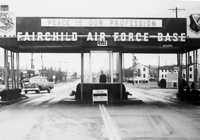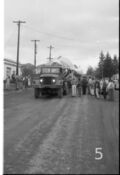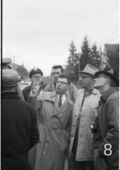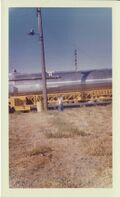Reardan and the Cold War: Difference between revisions
No edit summary |
No edit summary |
||
| (One intermediate revision by the same user not shown) | |||
| Line 7: | Line 7: | ||
<gallery heights=200px> | <gallery heights=200px> | ||
567th_Strategic_Missile_Squadron_-_SM-65E_Atlas_Missile_Sites.png | Locations of the Fairchild Atlas missile sites. | 567th_Strategic_Missile_Squadron_-_SM-65E_Atlas_Missile_Sites.png | Locations of the Fairchild Atlas missile sites. | ||
1961-missile-in-reardan.png| Atlas missile in transit at Broadway Avenue (US2) and Cedar Street (Irma Plaster photo) | 1961-kirk-0029a-missile-in-reardan.png| Atlas missile in transit at Broadway Avenue (US2) and Cedar Street (Irma Plaster photo) | ||
1961-missile-in-reardan-usaf-photo.jpg | Atlas missile in transit at Broadway Avenue (US2) and Aspen Street (USAF photo) | 1961-missile-in-reardan-usaf-photo.jpg | Atlas missile in transit at Broadway Avenue (US2) and Aspen Street (USAF photo) | ||
1961-03-dan-print-00566a-reardan-atlas-01-1600.jpg | Atlas missile in transit at Broadway Avenue (US2) and Aspen Street (Dam Plaster photo) | 1961-03-dan-print-00566a-reardan-atlas-01-1600.jpg | Atlas missile in transit at Broadway Avenue (US2) and Aspen Street (Dam Plaster photo) | ||
| Line 23: | Line 23: | ||
1961-missile-entering-atlas-base-usaf.JPG | Missile arriving at Reardan Atlas site (USAF photo) | 1961-missile-entering-atlas-base-usaf.JPG | Missile arriving at Reardan Atlas site (USAF photo) | ||
1961-reardan-atlas-site-s-9.jpg | Aerial view of Reardan (s-9) Atlas site (USAF photo) | 1961-reardan-atlas-site-s-9.jpg | Aerial view of Reardan (s-9) Atlas site (USAF photo) | ||
1961-missile-at- | 1961-missile-at-reardan-goxing-sc-142-usaf.jpg | Missile raised, fueled and ready to go (without warhead) (USAF photo) | ||
</gallery> | </gallery> | ||
Latest revision as of 10:46, 24 August 2023
DRAFT--This page is a draft. It is incomplete, not proof read and may contain research notes
Whether Reardan wants to admit it or not, it was affected by the cold war. This was mainly due to its proximity to Fairchild Air Force Base, but also to the Midnight mine and the Hanford Reservation. It was affected by different aspects of thermonuclear warhead deployment programs:
- B-52s continuously flew out Fairchild carrying nuclear bombs with flights so regular you could set your clock by them.
- Atlas E missiles with intercontinental thermonuclear warheads moved through the community on trucks. Standing Watch by Wally Lee Parker is a thorough paper about the sister Atlas missile base in Deer Park which was part of the same deployment as Reardan. Some pictures of the missile parading around Deer Park can be found in a Clayton-Deer Park Historical Society newsletter.
- Missile is an Atlas E series missile destined for Davenport/Bluestem, Wilbur, Davenport/Egypt, Reardan/Crescent or possibly Odessa/Lamona. Missiles for the other sites (Sprague, Deer Park, Newman Lake, Rockford/Worley) would had taken different routes. Site construction started in 1959 and were operational between 1961 and June 1965. Quick history at [https://www.historylink.org/File/10158%7C. All of the Atlas E sites were armed with nuclear devices 100 times as powerful as the Nagasaki/Hirshima bombs.
Things to note about these photographs:
- Colvilles Garage on northeast corner of broadway and Aspen
- Texaco station (and car dealership) on southeast corner of Broadway and Aspen.
- Union 76 station on northwest corner of Broadway and Aspen.
- Jone's Mobil station on the northwest corner of Broadway and Cedar
- Grain elevators before painting the Reardan Grain Growers identifier (before 1962)
- Second driver/steering in compartment in front of rear wheels
- Telephone poles with five arms of wires (one pair for each conversation or party line)
- Festive occasion, like a parade. [I remember seeing something like this where the school kids were let out to see the missile come through town. I remember that it took quite a period of time because a helicopter had to be brought out from Fairchild to "lift" the missile carriage over the railroad tracks.]
- the Washington state patrol car. [I remember that the transferring the early missile involved closing the road so that the missile could pass. Later the road closure was more of a rolling road block forcing cars to pull over to the shoulders.]
- Fairchild was protected by four Nike anti-missile missiles, each one consisting of two sites: a control site and a launch site. Initially they were all Nike Ajax missiles. The Spokane and Cheney sites were decommissioned in 1960 while the sites at Medical Lake (overlooking Espanola) and Deep Creek were converted to Nike Hercules, which means they were equipped with nuclear warheads intended to be detonated over US air space. The sites were:
- Cheney (F-37) 117°32′46″W (active 1957 to June 1960) now Cheney School district office
- Deep Creek (F-87) 47°39′29″N 117°42′55″W (active September 1958 to March 1966)
- Medical Lake (F-45) 47°35′10″N 117°40′32″W (active 1957 to March 1966)
- Spokane (F-07) 47°40′50″N 117°36′28″W. (active 1957 and June 1960)
A short history of Nike missiles is at [1] https://www.historylink.org/File/9711].
- The Atlas and Nike missile sites polluted the aquifer with the solvents used to clean the missiles resulting in EPA superfund clean up work.
- Midnight uranium mine on Spokane Indian reservation. (See https://www.hcn.org/issues/122/3886 and https://www.spokesman.com/picture-stories/2011/jun/05/radioactivity-spokane-reservation/).
- The Hanford project near Yakima converted uranium into plutonium for bombs and may have released radioactive materials into the atmosphere.
July 23, 1990 The News Tribune (Tacoma)
Hanford victims begin placing blame
Radiation report finally gives residents answers for mystery illnesses
By Michael Helenilgor
Knight-Ridder Newspapers
SEATTLE — For years Barbara Menini says her body's immune system had been “out of whack.” But neither she nor a flock of doctors could determine why.
As a young girl growing up in the Eastern Washington farming town of Reardan Menini had so much trouble with her kidneys “it seemed I was in the hospital more than I was home.” Later she suffered through five miscarriages lost her thyroid gland and even today cannot stand outdoor heat.
“I can’t go into the sun even now” the San Jose, Calif resident said “It's like the thermostat on the furnace is off kilter.”
But when the US Department of Energy acknowledged earlier this month for the first time that it had released large doses of radiation into the air around the Hanford Nuclear Reservation not far from where she was raised, Menini, 55, figured she had her answer. The government-operated nuclear bomb factories were responsible for her ill health.
Menini is not alone Around the country hundreds of people far removed from the high deserts of Eastern Washington have been angered and galvanized by the Energy Department’s admission.
The government report revealed that children living downwind from Hanford a 550-square-mile secret factory complex where the material for the atomic bomb dropped over Hiroshima was processed could have been exposed to carcinogenic levels of radioactive iodine 131 between 1944 and 1947.
“We've been absolutely buried, inundated with calls,” said Scott Davis an epidemiologist with the Fred Hutchinson Cancer Research Center in Seattle, who is leading a probe of the health effects of the radiation releases. More than 100 people per day have been calling the center asking for more information, he said, with the “most hysterical” calls coning from the East, where Hanford has not usually been in the headlines.
Rosetta Krause, 55, is another California resident caught short by the news, even though her father worked in the secret bomb complex when she was a child. That secrecy prevented him from describing his work, so Krause was surprised when a doctor surmised a few years ago that she had been exposed to radiation.
“My medical records showed exposure to radiation, but I didn’t know from where,” said Krause who has lost a kidney to cancer and had other tumors removed. “I mean I thought they were nuts. Now I know different.
“When my father worked at Hanford, they told him it was a healthy site, that everything was OK and safe. Now we know they actually lied to everybody about it.
Krause says her father and a number of his former colleagues who were sent to Hanford during the war and later returned en masse to rural Illinois share a number of health maladies, but they have never pointed an accusing finger at Hanford.
Likewise, Menini recalled how she returned to her childhood home last May began chatting with friends and was struck by how many acquaintances had been afflicted with serious health problems. One friend had his thyroid gland removed, another contracted lupus, a few others had cancer, another had just died.
“It seemed odd that all these people had health problems,” Menini said. “But none of us thought about Hanford. I didn’t connect to Hanford when the stories were first written, but now they’re hitting home.”
The reaction by the media and by potential victim, such as Krause and Menini, to the Energy Department disclosures have been somewhat surprising to Davis and other scientists, since the government's own findings corroborate earlier studies conducted by the state of Washington and the Centers for Disease Control.
DRAFT--This page is a draft. It is incomplete, not proof read and may contain research notes




















